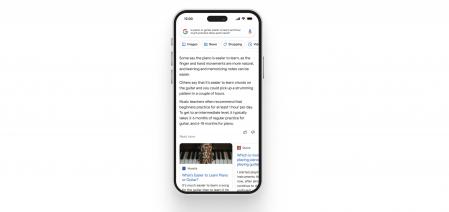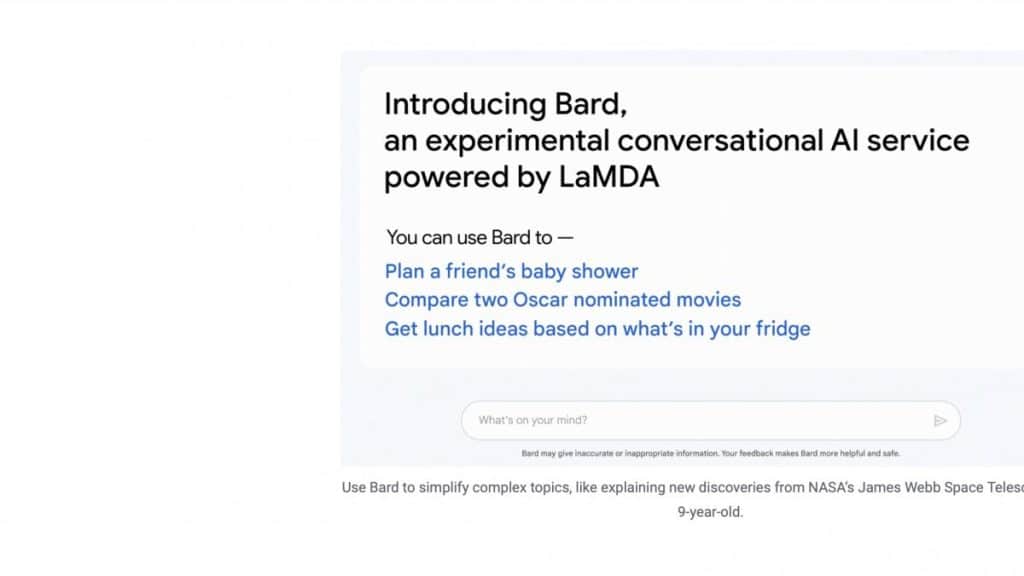The output of ChatGPT already squeezed Google. Sundar Pichai, CEO of the search engine company and its parent company, Alphabet, has announced that in the coming weeks he will make available to the public Bard —bard, lyrical poet in English—, an Artificial Intelligence based on his LaMDA linguistic model, of which a computer engineer said last year that he was aware.
Pichai has explained that Bard intends to combine “the breadth of world knowledge with the power, intelligence and creativity” of his great linguistic models. “He draws on information from the web to offer fresh and high-quality answers,” she pointed out. “Bard —he has exemplified— can be an outlet for creativity and a launching pad for curiosity, helping you explain the new discoveries from NASA’s James Webb Space Telescope to a 9-year-old child, or to learn more about the best forwards in football right now, and then get drills to improve your skills.”
Google will release a version of the lightweight model of LaMDA for now because it requires much less computing power and that allows Google to extend it to more users and get more information. Pichai has justified the opening of searches to AI because “increasingly, people turn to Google to obtain deeper information and knowledge”
“AI,” he pointed out, “can be useful at this time, synthesizing ideas for questions where there is no single correct answer.” In a few weeks, Google search will have “AI-powered features that distill complex information and multiple perspectives into easy-to-digest formats.” The goal, according to Pichai, is for people to be able to “quickly understand the big picture and learn more about the Web: whether it’s looking for additional perspectives, like blogs from people who play both piano and guitar, or delving into a related topic, as the steps to start as a beginner”.

Bard gives a full explanation in a quest
Starting in March, Google will begin giving individual developers, creators, and businesses access to try out its generative language app interface, allowing LaMDA to connect to apps and web services. “Having the computing power to build reliable and trusted AI systems is also crucial for startups, and we are excited to help scale these efforts through our Google Cloud partnerships with Cohere, C3.ai and Anthropic, which was just announced last week,” Pichai said.
The top leader of Google has also pointed out that he is committed to developing “AI responsibly” and recalled that in 2018 his company “was one of the first companies to publish a set of AI Principles”. “We work with communities and experts to make AI safe and useful”, he concluded.


